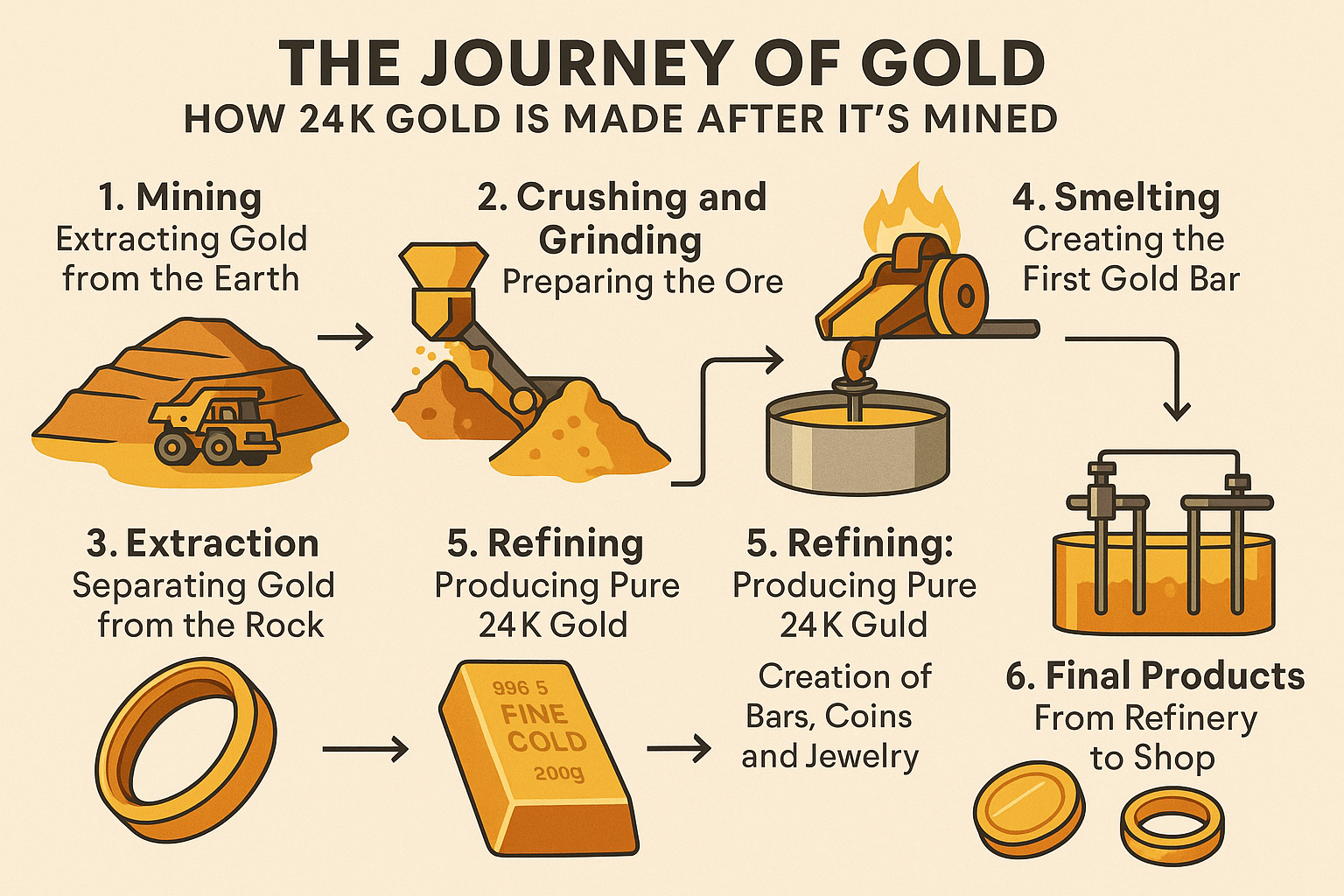Gold is one of the most valued and admired metals on Earth — but how does it go from raw rock deep in the earth to the pure 24K gold you see in jewelry stores? The process is long, scientific, and fascinating. Let’s explore how gold is transformed after it’s mined.
⛏️ Mining: Extracting Gold from the Earth
The journey begins at gold-rich locations deep underground or along riverbeds. Gold is mined using several methods:
Open-pit mining – used for surface-level deposits
Underground mining – for deeper gold veins
Placer mining – involves panning or dredging riverbeds for loose gold particles
The result is gold ore – a mix of rock, dirt, and tiny particles of gold.
🪨 Crushing and Grinding: Preparing the Ore
The mined gold ore is transported to processing facilities, where it’s crushed and ground into a fine powder. This step increases the surface area, making it easier to extract gold from other materials.
🧪 Extraction: Separating Gold from the Rock
Next, the gold must be chemically separated from the other elements in the ore. Common extraction methods include:
Cyanidation – the most widely used technique, where cyanide solution dissolves the gold
Gravity separation – used when gold particles are large and heavy enough to separate by weight
Amalgamation – involves mixing gold with mercury to form an alloy (used less today due to environmental concerns)
This process results in a concentrated gold solution or a fine gold-rich mixture.
🔥 Smelting: Creating the First Gold Bar
The gold concentrate is heated at high temperatures in a furnace during a process called smelting. This melts the gold and helps remove impurities. What comes out is a rough, semi-pure gold bar called a doré bar, which is typically 80–90% gold.
⚗️ Refining: Producing Pure 24K Gold
To become the 99.9% pure gold (24K) we know, doré bars are sent for refining. There are two main methods:
Miller Process – uses chlorine gas to remove impurities quickly (results in 99.5% purity)
Wohlwill Process – an advanced method using electrolysis, which can achieve 99.99% purity
This step transforms the gold into investment-grade bars or high-purity material for luxury items.
🪙 Final Products: From Refinery to Shop
Now fully refined, the pure gold is ready to be used. It can be:
Cast into bars for investment or central bank reserves
Minted into coins
Alloyed and crafted into jewelry (for example, 22K or 18K gold)
Finally, these gold products are distributed to jewelry shops, banks, or gold dealers, where customers buy them for personal use, gifting, or investment.
✨ From Rock to Riches
Behind every 24K gold piece lies a powerful story — from the depths of the earth to the precision of science and craftsmanship. Whether in the form of a ring, necklace, or gold bar, every piece of gold has taken a long and remarkable journey to get to you.
